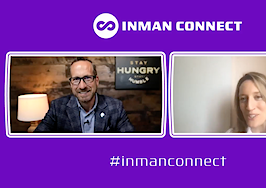An escalation clause can help buyers gain a crucial edge in today’s seller’s market. So, it’s extremely important for buyers agents to know the ins and outs of escalation clauses and how to most effectively craft them for buyers today. It’s also important for buyers agents to adequately educate their buyers on how escalation clauses work so that everyone’s expectations are aligned.
The basics: What is an escalation clause?
An escalation clause allows a buyer to stipulate in a contract that they are willing to pay a certain amount of money over other offers that may come in on a home. The buyer will name an initial offer price, and typically also name a cap on how high they’re willing to go with the offer — although, not always.
In a multiple offer situation, including an escalation addendum to an offer can prove extremely valuable. However, if the property a buyer is putting an offer on does not have multiple bids, there’s no reason for agents to include this addendum in the offer. Therefore — although multiple offers are common in many markets today — agents should be certain that a property has interest from multiple buyers before guiding a client towards including an escalation clause in the offer. Otherwise, the sellers will gain leverage because buyers are “laying all their cards on the table,” as a post on Realtor.com puts it. Once sellers know how much money the buyers really have at hand, they can counteroffer for a higher price, and it may be difficult for buyers to argue otherwise.

Edward Mermelstein
“This type of a clause and when it’s submitted in an offer, basically takes away all of your negotiation abilities, because you’re basically saying to the seller that I’m willing to pay any price,” Edward Mermelstein, real estate attorney and founder of boutique real estate firm One&Only Holdings, told Inman.
“In a hot market, it’s the type of situation that I guess all of a sudden becomes popular simply because it allows people that are really, really set on owning a certain piece of property to get it no matter what the price is,” he added. “But, that’s when you let your emotions, rather than your brain, lead you to a finalization of what could be the most expensive purchase of your [own] making in your lifetime.”
How agents should approach an escalation clause
Writing an escalation clause is a tricky balance between presenting a seller with an offer with enticing numbers while also maintaining a buyer’s comfort level.
“An escalation clause, in my opinion, is a buyer’s agent working for their buyers to ensure their buyer does not overpay for a property,” Therese Antonelli, broker at Moving the Mitten Real Estate Group, said during an Inman Connect panel called “Top Tips for Getting Your Offer Accepted in a Competitive Market” in mid June.

Therese Antonelli
But Antonelli said that in her market, she’s seen buyers agents pair escalation clauses with an offer that’s already starting high. This method, she argued, makes buyers vulnerable to overpaying much more than they may need to, depending on what other offers are at play.
“If I list the house at $300,000, write your offer at $300,000 on your [purchase agreement] and give me your escalation of $1,000 over the highest offer,” Antonelli told Connect attendees. “I’m getting agents who are coming in and saying, ‘$330,000 is my base and then I’m willing to pay $1,000 over.’ Well you just set the base at $330,000, you dummy! When I see that, I’m like, ‘oh my gosh, this is great for my seller,’ but if you’re truly representing your buyer, you’re selling them short by setting that escalation.”
Mermelstein said he would not recommend any real estate agent or broker write an escalation clause on their own, without the assistance of an attorney, because they may accidentally use language that contractually binds the buyer into an obligation.
“If you’re not using an attorney and you have a non-professional draft the language, you may put yourself into a contractual obligation that you may not really want to be in, or commit yourself to something that you may not necessarily know that you’re committing yourself to,” Mermelstein said. “So again, legal language should be at least reviewed by an attorney, if it is legal language. Otherwise, if it’s a simple sentence that you pull off the internet, just make sure you know what you’re getting into.”
What your buyer needs to know
After determining whether or not the property your client is interested in is getting attention from multiple buyers, first talk with your client to get clarity on how desperate they are to get the home. If a buyer only likes the home or is “very interested” this is probably not the situation in which to use an escalation clause.
However, if your buyer sees the home and says they can’t imagine living anywhere else, you may both agree to whip out the escalation clause. But, agents need to be certain that buyers who opt for this tactic fully understand what they’re doing.
Employing an escalation clause in a contract means the buyers don’t necessarily know up front just how much they could be paying — and a buyer needs to be okay with that uncertainty.
If a buyer is enthusiastic about using an escalation clause straight off the bat during an initial round of bidding, an agent may also want to encourage their buyer to put on the brakes. The reason to potentially hold off on writing up an escalation clause right away is that, depending on the individual agent and other common practices in their particular market, in subsequent days, the listing agent may ask for best and final offers, at which point, if your buyer has already submitted an escalation clause, they may not have much more to give.
Before submitting an offer with an escalation clause and forgetting about other offer factors, buyer agents should remember to do their due diligence in asking the listing agent about what factors are important to their seller. A buyer may be under the impression that if their escalation clause hits the right numbers, they can’t lose a bid — but that’s not true. Money is often the determining factor in multiple offer situations, but not always. The responsibility falls on the buyer’s agent to learn what it is the seller really wants, and help their buyer put together an offer that addresses those desires.
Mermelstein said that if a buyer and their agent do choose to use an escalation clause, to be sure to include a maximum price on the clause in order to protect the client, and be sure that number is truly comfortable for them. But, he said it’s also important for buyers to realize that just because they include an escalation clause in an offer, it does not mean that they’re bound to it at that point.
“They’re not actually obligating themselves to increasing their offer to a certain number,” Mermelstein said. “An escalation clause should be a non-binding clause that does not require you to actually move forward with an offer that’s being made.”









